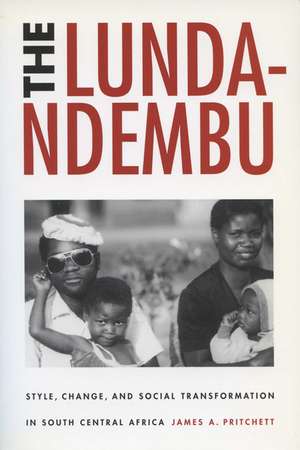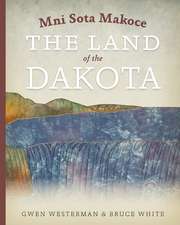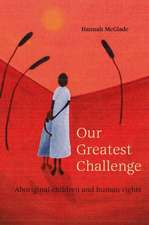The Lunda-Ndembu: Style, Change, and Social Transformation in South Central Africa
Autor James A. Pritchetten Limba Engleză Paperback – 25 iun 2001
Bridging history and anthropology, this richly documented account of the Lunda-Ndembu people of northwestern Zambia has at its center the paradox of continuity and change. To legitimate and justify innovations to their cultural identity and practice, the Lunda-Ndembu propose that such innovations have conceptual similarities to long-standing traditions.
While framing the discussion around classic anthropological oppositions—the individual versus the group, old versus young, females versus males, rich versus poor, us versus them, people versus the natural environment, the physical world vs. the metaphysical world—James A. Pritchett also offers a work of historical imagination. It is at the shifting boundaries of these relationships, he argues, that change is actually confronted on a daily basis, spoken about, and negotiated into conformity with widespread and enduring traditions.
Juxtaposing Victor Turner's ethnographic data on the Ndembu from the 1950s with his own fieldwork in the 1980s and 1990s, Pritchett demonstrates that, by restudying areas already well known, it is possible to generate richly nuanced answers about social change that more accurately reflect local sensibilities.
While framing the discussion around classic anthropological oppositions—the individual versus the group, old versus young, females versus males, rich versus poor, us versus them, people versus the natural environment, the physical world vs. the metaphysical world—James A. Pritchett also offers a work of historical imagination. It is at the shifting boundaries of these relationships, he argues, that change is actually confronted on a daily basis, spoken about, and negotiated into conformity with widespread and enduring traditions.
Juxtaposing Victor Turner's ethnographic data on the Ndembu from the 1950s with his own fieldwork in the 1980s and 1990s, Pritchett demonstrates that, by restudying areas already well known, it is possible to generate richly nuanced answers about social change that more accurately reflect local sensibilities.
Preț: 164.75 lei
Nou
Puncte Express: 247
Preț estimativ în valută:
31.52€ • 33.00$ • 26.08£
31.52€ • 33.00$ • 26.08£
Carte disponibilă
Livrare economică 17-31 martie
Preluare comenzi: 021 569.72.76
Specificații
ISBN-13: 9780299171544
ISBN-10: 029917154X
Pagini: 392
Dimensiuni: 152 x 229 x 20 mm
Greutate: 0.51 kg
Ediția:1
Editura: University of Wisconsin Press
Colecția University of Wisconsin Press
ISBN-10: 029917154X
Pagini: 392
Dimensiuni: 152 x 229 x 20 mm
Greutate: 0.51 kg
Ediția:1
Editura: University of Wisconsin Press
Colecția University of Wisconsin Press
Recenzii
"An outstanding interpretive effort and a timely antidote to the 'invention-of-Africa' paradigm that usually leaves preciously little analytical space for the thinking villager."—Elias Mandala, University of Rochester
Notă biografică
James A. Pritchett is assistant professor of anthropology and assistant director of the African Studies Center at Boston University.
Descriere
Bridging history and anthropology, this richly documented account of the Lunda-Ndembu people of northwestern Zambia has at its center the paradox of continuity and change. To legitimate and justify innovations to their cultural identity and practice, the Lunda-Ndembu propose that such innovations have conceptual similarities to long-standing traditions.
While framing the discussion around classic anthropological oppositions—the individual versus the group, old versus young, females versus males, rich versus poor, us versus them, people versus the natural environment, the physical world vs. the metaphysical world—James A. Pritchett also offers a work of historical imagination. It is at the shifting boundaries of these relationships, he argues, that change is actually confronted on a daily basis, spoken about, and negotiated into conformity with widespread and enduring traditions.
Juxtaposing Victor Turner's ethnographic data on the Ndembu from the 1950s with his own fieldwork in the 1980s and 1990s, Pritchett demonstrates that, by restudying areas already well known, it is possible to generate richly nuanced answers about social change that more accurately reflect local sensibilities.
While framing the discussion around classic anthropological oppositions—the individual versus the group, old versus young, females versus males, rich versus poor, us versus them, people versus the natural environment, the physical world vs. the metaphysical world—James A. Pritchett also offers a work of historical imagination. It is at the shifting boundaries of these relationships, he argues, that change is actually confronted on a daily basis, spoken about, and negotiated into conformity with widespread and enduring traditions.
Juxtaposing Victor Turner's ethnographic data on the Ndembu from the 1950s with his own fieldwork in the 1980s and 1990s, Pritchett demonstrates that, by restudying areas already well known, it is possible to generate richly nuanced answers about social change that more accurately reflect local sensibilities.











